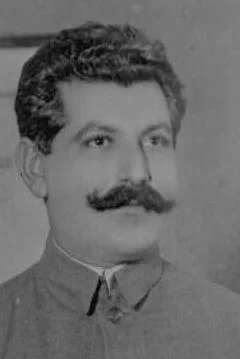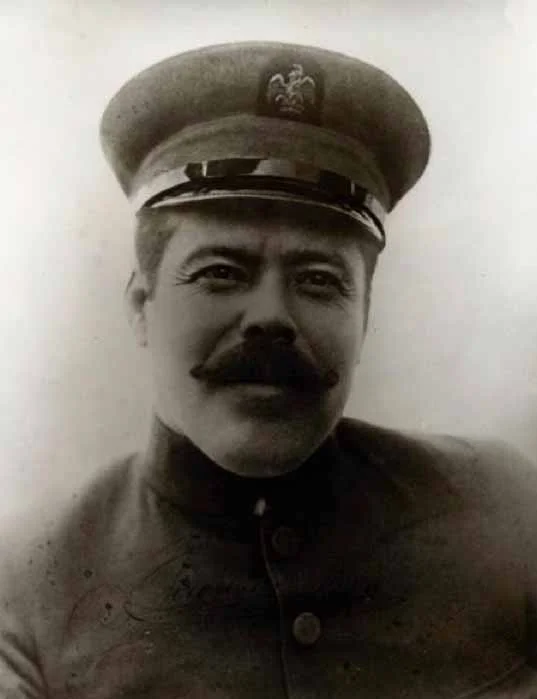A sensitive diplomatic situation developed in the Mexican capital in December 1914. It greatly affected the future of Pancho Villa’s productive relationship with the United States and the Department of State in particular. The main cause of consternation was Colonel Eduardo Iturbide, a distant relation of the first Mexican emperor, Agustin de Iturbide. He had been police chief of Mexico City, as well as governor of the Federal District. After President Victoriano Huerta chose to go into exile in July 1914, Iturbide stayed behind to maintain order in the capital. His efforts enjoyed widespread admiration among the foreign colony. A very wealthy socialite and accredited “nobleman,” Iturbide was handsome, charming, a member of all the right clubs, and a successful polo player. The American government especially appreciated Iturbide’s courage to stay behind as a Huerta official and wait for the forces of Alvaro Obregón rather than Emiliano Zapata to take control of the capital. American officials and the large colony of foreign businessmen shuddered at the thought, albeit irrational, of Zapata’s “wild hordes” ransacking the city and murdering foreigners for entertainment.
Eduardo N. Iturbide
Iturbide kept his commitment. The capital remained calm. In order to keep order Iturbide moved police and federal army units to the outskirts of Mexico City to check the advance of the encroaching Zapatistas. According to press reports, fifty Zapatistas died in the clashes. When General Obregón finally entered the capital in the middle of August, the American colony demanded that Iturbide remain unmolested. Under pressure from the American embassy, Obregón had to guarantee the police chief’s security. A week later, Carranza seconded the decision, deferring a “trial” of Iturbide for serving under Huerta and killing Constitutionalist soldiers to a later, unspecified date.
However, all that changed in November, the moment Obregón left the city and allowed the Zapatistas to take over. The colonel’s fate threatened to parallel that of his famous ancestor, Emperor Iturbide of Mexico: Execution. Fearing for his life, he went underground, protected by the American diplomats John Silliman and Leon Canova. He hid in the residence of H. Cunard Cummins, the British charge d’affairs. As the new government under Eulalio Gutiérrez settled in, both the Villa and Zapata factions began rounding up former federals, members of the Huerta government, supporters of the Carranza government, and a whole host of people noted on wanted lists as “enemies of the state.” According to American reports, 155 men had been executed in the week after Christmas alone. Without question, Iturbide featured prominently on Zapata’s blacklist. President Gutiérrez did not support the wonton acts of violence Villa and Zapata’s henchmen were committing. However, he had little sway over the likes of Villa’s notorious executor, Rodolfo Fierro, settling old debts. “Representations were made to the authorities in Mexico City by both the American and British government, asking that he [Iturbide] be given passports to leave the country. These were granted by provisional president Gutiérrez and immediately resulted in a vigorous protest from Gen. Palafox, the Zapata leader in Mexico City.”
Special Envoy to Mexico, Leon L. Canova
On December 21st, American special envoy Leon L. Canova with the help of American consul John R. Silliman convinced Mexican President Gutiérrez to issue a safe conduct pass for Iturbide. Both diplomats acted on orders of the State Department. In the previous week, on December 13th, Secretary of State Bryan had instructed Silliman: “Do everything in your power to save Iturbide. He acted for Carvajal [sic] and turned the city over to the Constitutionalists thus saving much loss of life as well as preventing disorder. It would be most unfortunate if he were dealt with harshly.” Accordingly, Silliman created a passport for “a citizen of Mexico sojourning in the United States.” With Zapata hot on Iturbide’s heals, Silliman and Canova decided to smuggle him out.
Canova had scheduled a trip back to Texas in order to be home for Christmas. He decided to hide Iturbide in his special railcar, in which he enjoyed diplomatic immunity. None other than Pancho Villa himself saw Canova, and even briefly chatted with him, at the train station in Mexico City on December 22nd. It is unclear why Villa was at the station. Most likely, he arrived from a trip. Severe fighting had erupted in Guadalajara, Veracruz, Saltillo, and the area around Tampico. This was a very busy time for Villa, the de-facto master over much of Mexico. The rebel leader who had entered Mexico with a handful of men less than two years ago now had reached the zenith of his military and political power. After the train left, Villa’s secret service reported to him that Iturbide had been observed with Canova and that he had disappeared.
General Francisco "Pancho" Villa
Villa put together what had occurred and, after throwing one of his well-known fits, issued a call for Iturbide’s arrest. Cables went out to garrisons all along the rail line to stop Canova and search his compartment. The situation grew tense. Villa had ransacked a British consulate to get Luis Terrazas Jr. three years earlier. Certainly, he was capable of extracting Iturbide from Canova’s railcar. In fact, he vowed to get Canova and Iturbide himself if his commanders would not dare to. Villa’s secret service agents boarded the train in Aguascalientes. Canova refused to allow a search and managed to fend off the Villistas. A few hours later, the train stopped again, this time in Zacatecas. The next day at Torreon, Canova intimidated a whole company of troops and demanded to complain directly to Pancho Villa. Not knowing what to do the officer in command permitted the train to continue. In Chihuahua City, the Villistas evacuated the whole train, claiming a defective car. A search party finally entered the compartment when Canova exited his railcar. Iturbide was gone! He had exited the train just south of Aguascalientes hours before the first attempt to search the compartment, and was making his way up to the American border on foot. Canova had so misled Iturbide’s pursuers by refusing a search, that they lost his trail. As the train with the American consul arrived in El Paso on Christmas day 1914, Iturbide relied on his skills and sheer luck to make it across the border to safety. “I rode on that train… just one day for I realized that the secret service men were trailing me and that an order for my arrest would come at any minute. I wrote my will and gave it to Mr. Canova and slipped off the train just south of Aguascalientes. I walked around aimlessly for sixty miles and finally got a horse on a ranch. For fifteen days I rode, disguised as a rancher and made my way to the American border, eluding troops and police by traveling mostly at night and sleeping by day.”
Villa was furious. He declared Canova a persona-non-grata. The new president, Eulalio Gutiérrez, had locked horns with both Villa and Zapata over the widespread persecution and execution of public and personal enemies. This episode brought the tensions to a boil. Villa accused Gutiérrez of corruption and treachery; Gutiérrez leveled charges of insubordination on the northern general. The split between Gutiérrez and his two main rebel leaders was by no means a surprise. However, the Iturbide affair certainly added fuel to the fire. The embattled Mexican president sent his wife to safety on the 9th of January, before he evacuated the capital for San Luis Potosi. Canova’s expulsion from Villa’s territory prompted Secretary of State Bryan to reinstate George C. Carothers as the personal envoy to Villa. Carothers had resigned in early December as a result of disagreements over policy with the State Department. Consistent rumors of corruption, coming from State Department sources, that have never been proven or litigated, implanted themselves in the historical portrait of the special envoy. Undoubtedly, Villa’s already shaky relationship with William Jennings Bryan also deteriorated as a result of this episode. Rather than ruining Canova’s diplomatic career, Villa’s refusal to let him come back to Mexico got the native Floridian a huge promotion: Secretary Bryan decided to appoint Canova to head the Latin American desk of the State Department. Canova thus became one of Villa's most powerful enemies.



